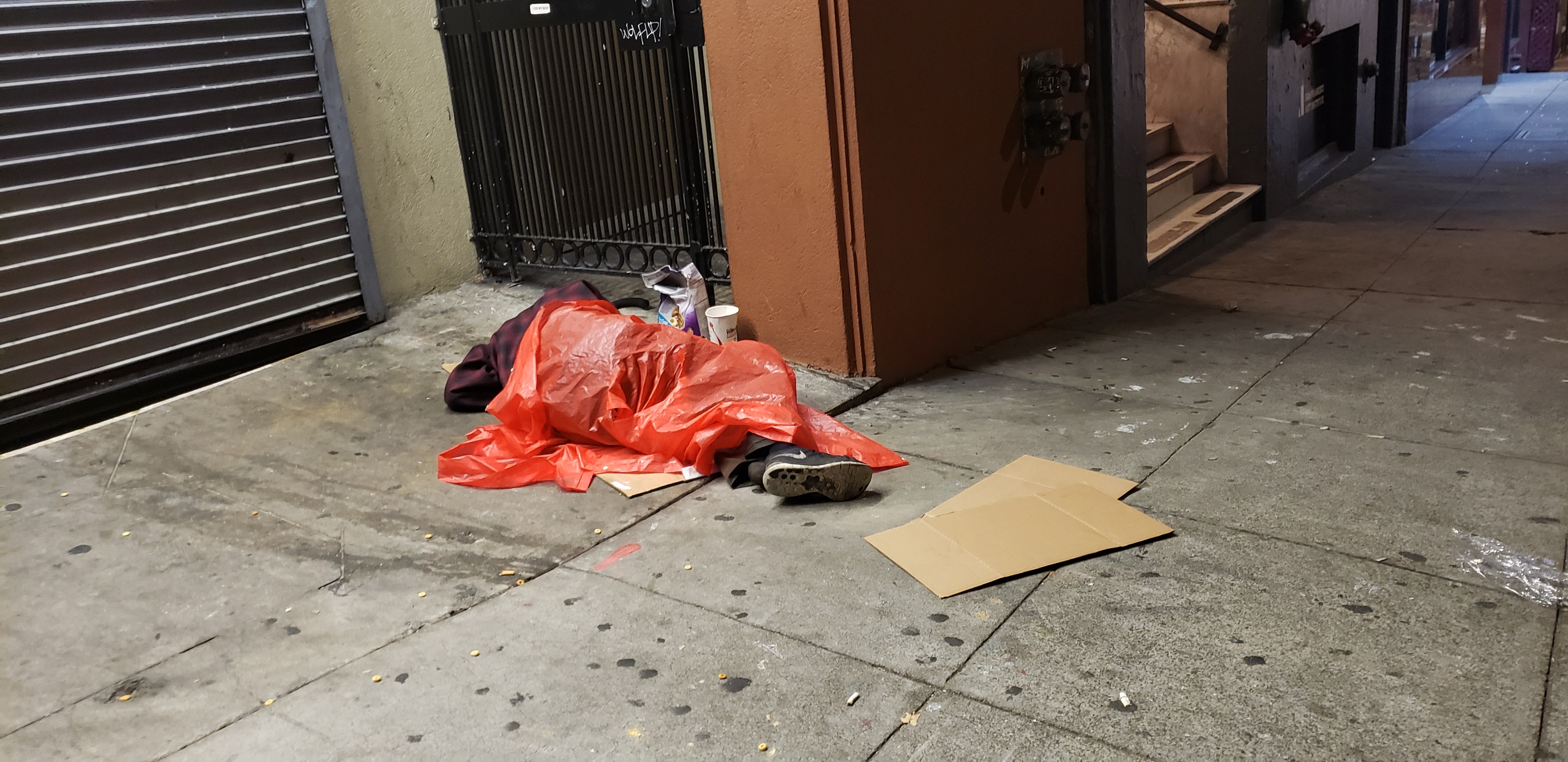
By David M. Greenwald
Executive Editor
On Friday, the U.S. Supreme Court announced that it will review a case that has major implications for the state of California as well as local communities attempting to address the problem of homeless encampments.
In reviewing, Johnson v. City of Grants Pass, the court will looking into a ruling from the Ninth Circuit that limited the ability of local governments and the state to conduct homeless sweeps.
In September, Governor Newsom filed an amicus brief urging the Court to clarify that state and local governments can take reasonable actions to address the homelessness crisis creating health and safety dangers for individuals living in encampments and our communities.
“California has invested billions to address homelessness, but rulings from the bench have tied the hands of state and local governments to address this issue,” said Newsom in a statement on Friday. “The Supreme Court can now correct course and end the costly delays from lawsuits that have plagued our efforts to clear encampments and deliver services to those in need.”
In September, the Governor was more pointed, noting that “the courts have tied the hands of state and local governments that seek to use common sense approaches to clean our streets and provide help for unhoused Californians living in inhumane conditions.”
He added, “While I agree with the basic principle that a city shouldn’t criminalize homeless individuals for sleeping outside when they have nowhere else to go within that city’s boundaries, courts continue to reach well beyond that narrow limit to block any number of reasonable efforts to protect homeless individuals and the broader public from the harms of uncontrolled encampments. It’s time for the courts to stop these confusing, impractical and costly rulings that only serve to worsen this humanitarian crisis.”
But not everyone agrees with this view.
As advocates for homelessness noted, “Today’s decision could upend decades of established Supreme Court precedent, and reopen a definition of cruel and unusual punishment that protects Americans, housed and unhoused, from unconstitutional treatment in the criminal legal system. The Grants Pass case questions whether governments can jail people simply for the crime of being too poor to afford housing.”
Potentially impacted by this decision is a case challenging San Francisco’s practice of criminalizing homelessness, Coalition on Homelessness v. City of San Francisco, which remains pending in federal district court and the Ninth Circuit just affirmed a preliminary injunction issued in that case.
The Lawyer’s Committee for Civil Rights noted, “While some elements of the Coalition’s case build on the findings in Grants Pass, the San Francisco case also deals with separate issues affecting the unhoused community, including the city’s destruction of property belonging to unhoused individuals, the city’s failure to make reasonable accommodations for unhoused individuals with disabilities, and whether sweeps unlawfully endanger people’s lives. Despite the Supreme Court’s actions today, the preliminary injunction and the upcoming trial scheduled for October 2024 remain in place. “
The group added, “The illegal destruction of property has tangible and destructive consequences for unhoused people, such as the loss of medicine, a wheelchair, the ashes of a loved one, or critical survival and work gear. It is precisely for these reasons that ‘sweeps’ of encampments often lengthen an episode of homelessness, undermining the stated purpose of clearing such encampments.”
“While SCOTUS considers the constitutionality of criminalizing homelessness, we will focus on resolving the important issues at the heart of the Coalition on Homelessness lawsuit, including protecting the property of unhoused people from indiscriminate destruction,” said Nisha Kashyap, senior staff attorney with the Lawyer’s Committee for Civil Rights of the San Francisco Bay Area, one of the lawyers representing the Coalition.
Kashyap added, “Regardless of what SCOTUS decides on the Eighth Amendment issues, we remain committed to ensuring that San Francisco follows the law and its own policies when it comes to safeguarding the rights and property of its unhoused residents.”
In addition to Governor Newsom, San Francisco and Mayor Breed have also filed amicus briefs urging the highest court to review the Grants Pass case.
In their filing, the city and mayor urged the Supreme Court to “summarily reverse the Ninth Circuit’s ruling,” something that LCCR called “an extraordinary request” which they say is “aimed at invalidating a federal district court ruling that barred jail time for unhoused people caught using a blanket to stay warm when there was no option to go inside.”
LCCR noted the Supreme Court did not take up the mayor’s request for this far-reaching relief.
“We appreciate that the Supreme Court did not act on San Francisco’s request as it was an overreach,” added John Do, senior staff attorney with the ACLU of Northern California. “The law remains, the trial proceeds, and the preliminary injunction is in place. Local governments should stop blaming the courts and unhoused people for their own policy failures. It’s time to focus on known solutions and invest in affordable housing and services.”
Prior to the lawsuit, the City of San Francisco repeatedly failed to demonstrate to the courts it is complying with requirements to: provide real offers of shelter to unhoused San Franciscans; safeguard the belongings of homeless people, as required by law, who are forced to relocate from street encampments; or to offer adequate training for City staff who are deployed to interact with individuals who live on the street because they have nowhere else to go.
Since the lawsuit, the city has announced a reduction in encampments and providing more efficient access to shelter and housing. “The way to solve homelessness is to create affordable housing and interim shelter,” noted Julian Highsmith, policy and communications director with San Francisco’s Coalition on Homelessness. “The City can address street homelessness while respecting unhoused individuals’ rights. To see this Supreme Court contemplating taking away yet another set of basic civil liberties is deeply disturbing.”


